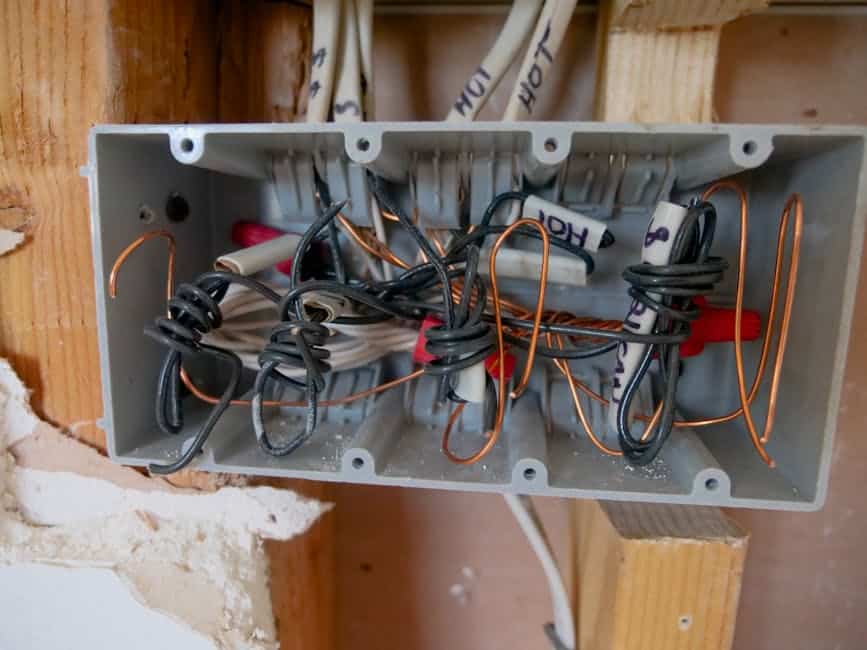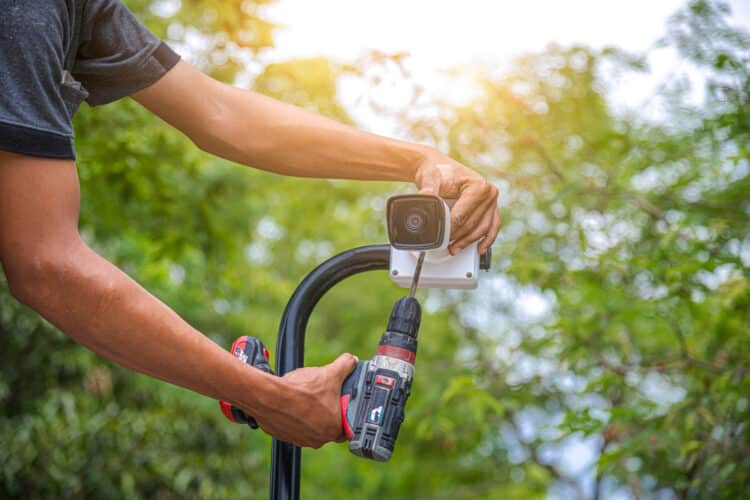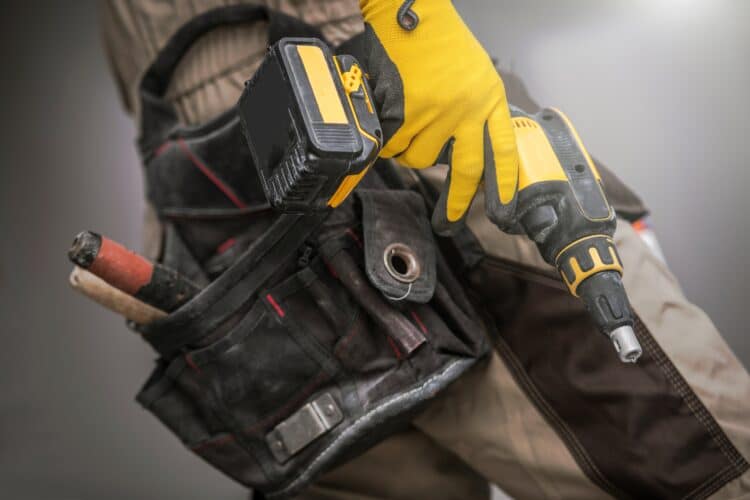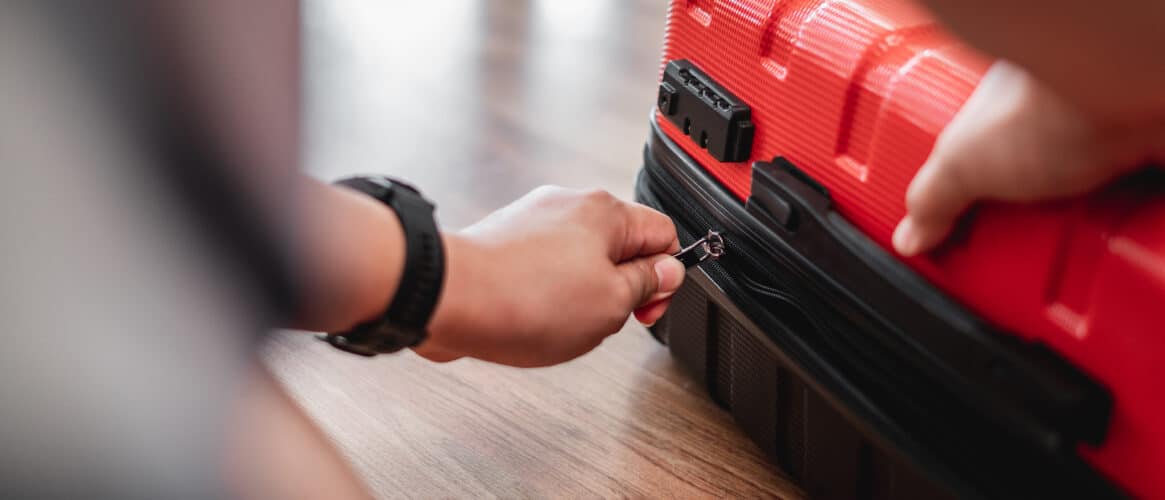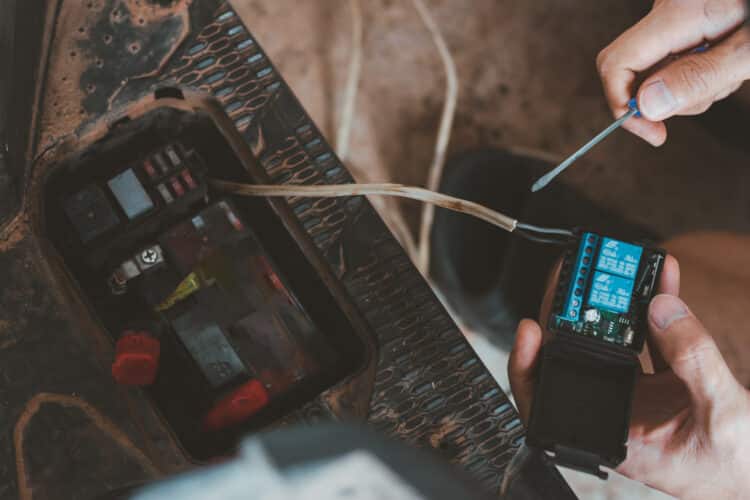What’s the Fallout from Drilling into a Wire?
Drilling into a wire can have serious consequences, posing potential dangers such as electrical shock, fire, and property damage. It is important to prioritize safety when working with power tools and take necessary precautions to prevent drilling into live wires. In this article, we will explore the effects of drilling into a wire and provide tips on how to avoid such incidents.
The Potential Hazards
When a drill comes into contact with an electrical wire, several signs indicate that damage has occurred. These signs include:
- Sparks or Smoke: If you notice sparks or smoke coming from the drill hole, it is a clear indication that the wire has been compromised. This can be a dangerous situation as it can potentially lead to a fire.
- Unexpected Power Outage: Drilling through a live wire can cause a short circuit, resulting in a sudden loss of power in your home. This can be a nuisance and potentially damage electrical appliances.
- Popping Sound: If you hear a popping sound while drilling, it could mean that the drill has made contact with a wire. This should serve as a warning sign to stop drilling immediately.
- Tripped Circuit Breaker: A tripped circuit breaker is another indication that you have drilled into a wire. This safety feature is designed to protect your home from electrical hazards, and tripping indicates that the circuit has been overloaded or short-circuited.
It is important to understand that the severity of the fallout from drilling into a wire depends on various factors, including the voltage of the wire and how you come into contact with it. The consequences can range from minor inconveniences to more severe hazards that can cause personal harm or property damage.
The Consequences
When a wire is damaged by drilling, the consequences can be significant:
- Electrical Fires: If the damaged wire is exposed to flammable materials, it can potentially ignite a fire. Electrical fires can spread quickly and pose a serious threat to life and property.
- Electrical Shocks: Coming into contact with a live wire can result in electric shocks, which can range from mild to severe depending on the voltage of the wire and the path the current takes through your body. Electric shocks can cause burns, muscle contractions, and even stop your heart.
- Property Damage: Drilling into a live wire can cause sparking, power outages, and damage to electrical appliances. These incidents can result in additional repair costs and inconvenience.
It is crucial to prioritize safety and take necessary precautions to prevent drilling into live wires. Here are some tips to avoid damaging wires while drilling:
- Limit Drill Depth: Adjust the depth setting on your drill to avoid drilling too deeply into walls where wires might be present.
- Avoid Forcing the Drill: If you encounter resistance while drilling, do not force the drill further as it may indicate the presence of a wire.
- Use Wire or Stud Finder: Before drilling, use a wire or stud finder to locate potential hazards. These tools can help you identify the presence of wires and avoid drilling into them.
- Anchor Vertical Wiring: When drilling into walls with vertical wiring, ensure that the wires are anchored at the center of studs. This reduces the risk of accidentally hitting a wire.
If, despite taking precautions, you accidentally drill into a live wire, it is important to know how to respond:
- Turn Off the Power: Immediately shut off the circuit by flipping the corresponding breaker in your electrical panel. This will prevent further damage and reduce the risk of electrical shocks or fires.
- Assess the Damage: Once the power is off, assess the extent of the damage. If the wire is exposed or damaged, do not attempt to repair it yourself. Call a qualified electrician to handle the repairs.
- Seek Professional Help: It is always recommended to seek professional help when dealing with electrical issues. A licensed electrician can safely repair the damaged wire and ensure your home’s electrical system is functioning properly.
Conclusion
Drilling into a wire can have serious consequences, including electrical shocks, fires, and property damage. It is important to prioritize safety and take necessary precautions to prevent such incidents. By following proper drilling practices, using wire or stud finders, and seeking professional help when needed, you can minimize the risk of drilling into live wires and ensure the safety of yourself and your property.
Related Websites:
FAQs:
Q: What are the potential consequences of drilling into a wire?
Drilling into a wire can lead to electrical shock and fire hazards. The severity of the fallout depends on factors such as the voltage of the wire, current flowing through it, and the type of wire insulation.
Q: How can drilling into a wire cause electrical shock?
Drilling into a live wire can cause electrical shock by coming into contact with the exposed wires. This can result in injuries such as burns, cardiac arrest, and nerve damage.
Q: What are the potential fire hazards of drilling into a wire?
Drilling into a wire can cause a fire due to sparks generated during the drilling process and the ignition of flammable materials. Examples of potential fire hazards include igniting nearby insulation or combustible substances.
Q: What precautions can I take to avoid drilling into a wire?
To minimize the risk of drilling into a wire, it is important to turn off the power before drilling, use a wire detector to locate wires, and consider alternative drilling methods if unsure about wire locations.
Q: What should I do if I drill into a wire?
If you drill into a wire, stay calm and take immediate action. Turn off the power supply, assess the damage and potential risks, and seek professional help if needed.

